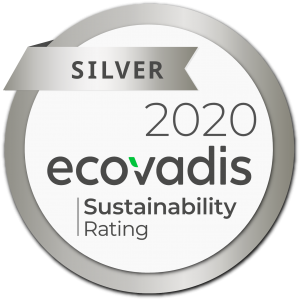TfS Initiative
As pressure on natural resources increases and issues of social justice are becoming more visible, stakeholders expect companies to promote sustainability not only within their own operations, but also with their suppliers. Large companies such as ICL, which interact with thousands of suppliers around the world, are expected to engage suppliers on sustainability issues and to include sustainability considerations as part of their procurement decisions.
Together for Sustainability (“TfS”) is a joint initiative of 26 multinational chemical companies that was founded in 2011.
Key Facts
- The TfS initiative is based on the UN’s Global Compact and Responsible Care® principles.
- The TfS framework includes standardized tools – TfS Assessments and TfS Audits – to assess and drive sustainability performance of chemical supply chains.
- TfS teams are found globally in Europe, the US, Brazil, China and Japan.
TfS’ goal is to drive and foster resilience, efficiency, and sustainability of global supply chains in the chemical industry. It has developed and implemented a global program to assess, audit and improve sustainability practices within the supply chains of the chemical industry. With thousands of suppliers assessed and audited through the TfS initiative, and many of them showing improvement over time, TfS member companies are effectively promoting a better world. Read more details about the TfS initiative on its web-site.
Through the TfS initiative, ICL is actively requesting its key suppliers to complete a CSR assessment and/or sustainability audit.
The challenge of the TfS program is to engage the supply chain in a way that will be both efficient and beneficial to suppliers. TfS sustainability assessments and audits are conducted with known criteria and are shared across TfS members. TfS Assessments are conducted through Ecovadis– a global leader in ranking sustainable practices of suppliers (see more below). A supplier conducts an initial sustainability assessment (renewed once every three years thereafter) and its score and detailed assessment is then added to the TfS suppliers database, which is shared with all member companies. This enables other members of the TfS initiative to become aware of new suppliers that have been assessed. The shared supplier pool increases their exposure to additional potential customers.
In 2019, and as part of the TfS initiative, ICL approached over 600 suppliers. Following these efforts and by the end of year, the company has achieved valid Ecovadis assessments for 62% of its target top-spend suppliers.
Implementing the TfS initiative in ICL
As a member of TfS, ICL is highly engaged and has committed significant resources to implement the plan successfully and meet KPIs expected of all TfS members. These efforts are led by ICL’s Global Procurement Organization (“GPO”).
The first stage of implementation included mapping ICL’s key suppliers to be targeted in the first year of membership (either in terms of procurement amounts or the supplier’s relative importance to the company’s production processes). In each region – Israel, Europe, North America, South America and Asia- a regional GPO representative was appointed to oversee local implementation. Dozens of procurement employees in several ICL regions underwent training regarding sustainable procurement, the TfS initiative and how to engage suppliers. ICL’s GPO developed an internal process to engage and track suppliers and their responses to the company’s requests to undergo assessments and audits. The company also created engagement procedures for situations where suppliers decline to participate – which have resulted in eventual participation by some suppliers. A monthly report is circulated to management and relevant GPO employees to reveal any major gaps in meeting established goals.
To better achieve the designated missions of the initiative, all TfS member companies define their target suppliers group, and then track and report on designated KPIs regarding their supplier engagement.
The targeted suppliers group selected by ICL for 2019-20 are the top spend suppliers (accounting together for 80% of the total 2019 spend) in areas of Raw Materials, Logistics & Packaging.
The set ICL KPI is to reach 55% of targeted suppliers with a valid EcoVadis sustainability assessment (published no more than 3 years ago). By the end of 2019- ICL has reached a 62% coverage of the target suppliers- achieving the annual target.
Also, as part of its sustainability vision for 2030, ICL has set a target of annually increasing by 5% (year-on-year), the number of total valid sustainability assessments for its global suppliers.
At the end of 2019 (the first year of operating within the TfS), ICL had 369 such suppliers. By Mid-2020, ICL arrived at 388 valid assessments (already surpassing the annual target (+5%=387).
ICL’s EcoVadis Score
As ICL (as well as other TfS members) must abide by the same standards as the company expects from its suppliers, ICL completed its second global Ecovadis assessment in 2020, ranking among the top 11% of 60,000 global ranked suppliers. ICL’s “silver” ranking of 62/100 was just below a gold ranking (>=65). See our score summary here. EcoVadis is considered a global leader in ranking sustainable practices of suppliers.

